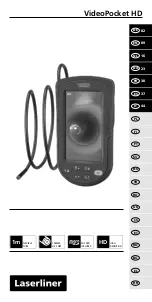
Accurate
Technology
Pro-60
Page
6
of
12
TAKING MEASUREMENTS
In order to take correct moisture content measurements, ensure that the meter’s
specific gravity (species) setting is the right one for your species of wood as listed in
the Species Adjustment Table
*
.
Be sure to press down firmly on the meter with approximately 1500g (3 pounds) of
force to ensure good sensor plate contact with the wood surface. This is especially
important on rough-sawn lumber. Do not take readings where there is a noticeable
defect or knot in the lumber. Be careful not to press down only on the lower end of the
meter as this can cause to meter to rock back from the raised sensor plate surface.
If there is visible surface moisture or water, wipe off any excess, and let the surface of
the wood dry-out for a couple of minutes, then take the reading. If possible, turn the
board over and measure the other side. If the thickness of the piece is greater than 1.5
inches, it is a good idea to take measurements on both sides.
If the lumber thickness is less than the scan depth of the meter, an air gap of at least
one inch needs to be maintained underneath the wood to prevent erroneous high
readings. Ensure that there is nothing (including your hand) under the material you
are measuring, especially any metal. The actual moisture sensing area is a 38mm (1.5
inch) x 63mm (2.5 inch) rectangle on the meter's backside (opposite side of the display
and keypad). In order to take a valid measurement, this sensing area must be
completely covered with the wood or other material you are measuring. If the sensing
area is not completely covered, your moisture reading will be inaccurate.
*
Additional meter corrections may be necessary if you are measuring Raft Wood (salt
water permeated), or lumber treated with Copper, Chrome, Arsenic (CCA), or
Ammonical, Copper, Quantenary (ACQ). Contact Accurate Technology for further
information for these applications.
METER STORAGE
For a long service life, it is important to store your meter properly. Avoid excessively
hot or cold locations, and keep the meter in the case provided. Do not store the meter
in an area with excessive electro-magnetic interference, such as near an electric
motor. Remove the battery if you plan an extended storage time.






























